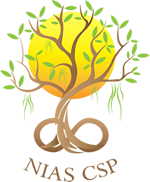Humanising Medical Practices: Indigenous, Interdependent and Cross-cultural Insights
28-29 July 2022, Online International Symposium, Organised by NIAS Consciousness Studies Programme, National Institute of Advanced Studies (Bengaluru, INDIA), and Supported by The Tata Trusts
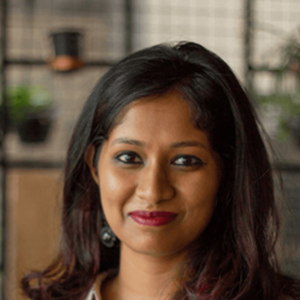 AMALA POLI
AMALA POLI
Western University, CANADA
Amala Poli is author of Writing the Self in Illness: Reading the Experiential Through the Medical Memoir and a doctoral student in Health Humanities at Western University, Ontario. Her research explores the intersections between medicine and literature through the aligned fields of medical and health humanities.
She holds an MA in English Studies from the Manipal Centre for Humanities, MAHE, situated in Karnataka, India, with an interdisciplinary orientation to philosophy and sociology. Her research focuses on situating sleep paralysis in the contemporary sleep crisis and examining the relevance of health humanities in narrativizing sleep.
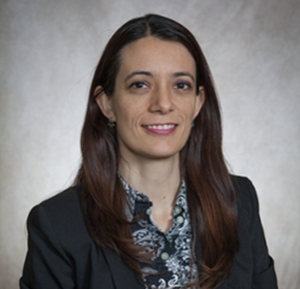 ANA LAURA FUNES
ANA LAURA FUNESDept of Philosophy
Eastern Connecticut State University, USA
Dr. Funes Maderey earned her M.A. in Philosophy at the National Autonomous University of Mexico and her Ph.D. in Comparative Philosophy at the University of Hawai’i at Mānoa. She is a specialist in Yoga Philosophy, Feminist Phenomenology, and Comparative Philosophies of the Body. Before joining ESCU, she taught for three years as full time faculty in the Master of Arts in Yoga Studies at Loyola Marymount University, Los Angeles. Her research interests are: The relation body-mind-consciousness as understood in Indian philosophies, French phenomenology and Feminism, Somaesthetics, Embodied theories of the Mind.
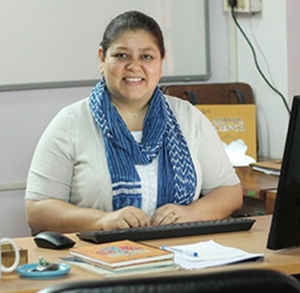 ANJULA GURTOO
ANJULA GURTOOCentre for Society and Policy
Indian Institute of Science, Bengaluru, INDIA
Dr Anjula Gurtoo is a Professor at the Department of Management Studies and Chairs the Centre for Society and Policy at the Indian Institute of Science, Bangalore. She is leading several national and international research projects in the domain of public and urban systems. She obtained her master’s in psychology from the University of Delhi in 1992 and pursued doctoral research at the Indian Institute of Management, Ahmedabad in 1998. She has been a Fellow of the International University of Japan, Niigata (2015), University of Leeds, United Kingdom (2006), and Social Science Research Council, Washington DC, USA (2003). She has authored three books and over 70 research articles in leading international refereed journals. She is a recipient of various national and international recognitions. She also has expert membership of various government and academic committees.
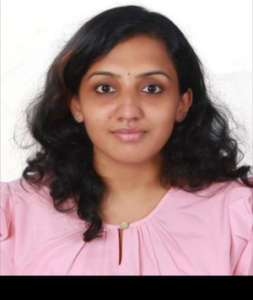 ARYA SURESH
ARYA SURESHDepartment of Humanities and Social Sciences
National Institute of Technology, Tiruchirappalli, INDIA
Arya Sis a Ph.D. graduate student at the Department of Humanities and Social Sciences in National Institute of Technology, Tiruchirappalli, Tamil nadu. Her research concentrates on comics studies, graphic medicine, and health humanities. She has published research articles in several journals including Journal of Graphic Novels & Comics (Taylor & Francis), among others and has presented research papers in several national and international conferences. Her doctoral study focuses on mental illness narratives in graphic medicine. She did her post graduation from University College, Thiruvananthapuram and graduation from Government College for Women, Thiruvananthapuram, Kerala.
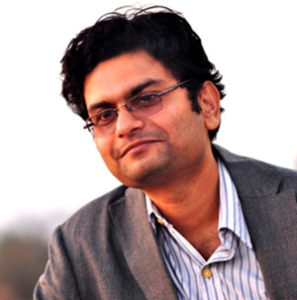 DYUTIMAN MUKHOPADHYAY
DYUTIMAN MUKHOPADHYAYNIAS Consciousness Studies Programme
National Institute of Advanced Studies, Bengaluru, INDIA
Dr Dyutiman Mukhopadhyay, PhD, is a cognitive scientist, photographer, filmmaker, writer—Adjunct Professor and Research Consultant for the Consciousness Studies Programme (CSP) at the National Institute of Advanced Studies (NIAS), India. He works at the confluence of the arts and sciences and is a practitioner of fine arts. He was a former British Academy Newton International Fellow at University College London (Experimental Psychology, Faculty of Brain Sciences, School of Life Sciences) as well as former Fellows in Govt. of India-funded research programmes. As a researcher, he studies human emotions using art as an investigative tool and develops multi-modal communication strategies for the betterment of mental health. Dr Mukhopadhyay has a PhD in Biomedical Sciences, post-doctoral experience in Cognitive Sciences and an Advanced Diploma in fine arts.
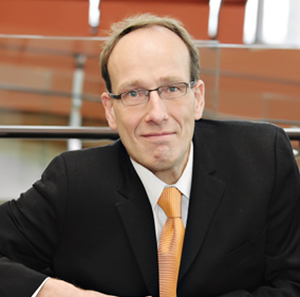 GEORG NORTHOFF
GEORG NORTHOFFBrain and Mind Research Institute
University of Ottawa, CANADA
Georg Northoff, MD, PhD is EJLB-CIHR Michael Smith Chair in Neurosciences and Mental Health and holds a Canada Research Chair for Mind, Brain Imaging and Neuroethics at the University of Ottawa Institute of Mental Health Research (IMHR). He completed his initial training in medicine/psychiatry and philosophy in Germany. Dr. Northoff’s previous academic positions included Professorships at the University of Magdeburg, Germany, and Harvard University, U.S.A. With over 100 scientific publications, his current focus is predominantly on the self – having developed the concept of cortical midline structures. Experimental research within his unit focuses on the functional and biochemical mechanisms underlying our sense of self in both healthy subjects and psychiatric patients. In addition to neuroimaging, he also focuses on neuroethical issues. Finally, these issues converge nicely with his deep standing interest in the discipline of neurophilosophy. He is considered one of the main founders from the European-continental side, as is illustrated by several papers and books including “Philosophy of the Brain” (2004).
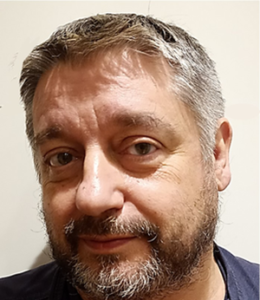 JAIME DIAZ
JAIME DIAZDepartment of Applied Communication Sciences
Universidad Complutense de Madrid, MADRID
Professor Jaime López Díez has a degree in Information Sciences from the Complutense University of Madrid and a PhD in Audiovisual Communication and Advertising from the University of Valladolid. He has taught at the Carlos III University of Madrid, the University of Valladolid, the U-tad and the Pontifical University of Comillas. In addition to his teaching experience, he has developed his professional career in television (Antena 3 TV and La 2 (RTVE)), written press ( El País Semanal , La Vanguardia , Muy Interesante , Tiempo , Tribuna de Actualidad ) and communication services (Universidad Carlos III of Madrid, Intermón Oxfam, Bank of Spain, Spanish Federation of Municipalities and Provinces)
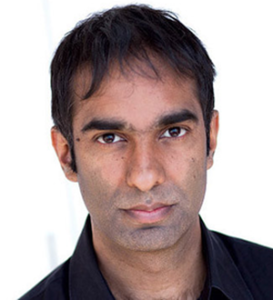 JAYKUMAR MENON J.D., M.I.A.
JAYKUMAR MENON J.D., M.I.A.Open Source Pharma Foundation
& The India Nutrition Initiative
INDIA & USA
Jaykumar Menon is an international human rights lawyer, scholar, and social innovator. He is the Chair and Co-Founder, Open Source Pharma Foundation and the Co-Founder of The India Nutrition Initiative. He is also a Senior Fellow at the Harvard Global Health Institute, a Visiting Scientist at the Harvard School of Public Health, and a Research Fellow at the Centre for International Sustainable Development Law, which is based at McGill University. His research, teachings and practice focus on innovative approaches to realizing basic human rights for a billion or more people. He is a founder and the chair of the Open Source Pharma Foundation, which aims to generate affordable new cures in areas of great health need and to create a new open source innovation model for drug discovery. OSPF commenced, with lead partner NIRT, Phase 2B clinical trials for a new adjunct therapy for tuberculosis, at less than roughly 1% the cost and 10% the time of a conventional model. He is also a founder of The India Nutrition Initiative, which is developing salt double-fortified with iron and iodine (“DFS”), to help address the world’s most widespread form of malnutrition, iron deficiency, which afflicts 2 billion people, disproportionately women and children. DFS has been included in over 1 billion meals.
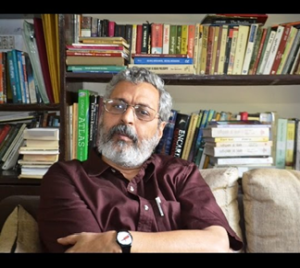 MANINDRA THAKUR
MANINDRA THAKURCentre for Political Studies
Jawaharlal Nehru University (JNU), INDIA
Dr Manindra Nath Thakur teaches at the Centre for Political Studies, Jawaharlal Nehru University. He started his academic career from Delhi University’s Zakir Husain College. He was one of the founding members of the group which established the Developing Countries Research Centre of Delhi University aiming at providing space for interaction between academicians and activists of the people’s movement. He joined the Nehru museum and library as a Fellow to undertake a research project on New Religious Movement and finally joined Jawaharlal Nehru University in 2006.
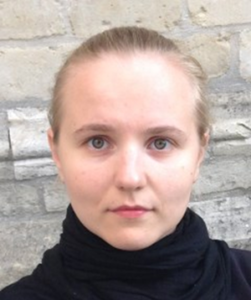 MĀRA GRĪNFELDE
MĀRA GRĪNFELDEInstitute of Philosophy and Sociology
University of Latvia Institute of Philosophy and Sociology,
and Riga Stradins University, LATVIA
Dr Māra Grīnfelde is a researcher at the Institute of Philosophy and Sociology of the University of Latvia, and an Associate professor at the Faculty of Humanities at RSU.
She is a philosopher by education, who is interested in medical phenomenology and the possibilities of applying philosophy in the field of public health.
She is currently running an ERDF post-doctoral research project: “Remote treatment: a phenomenological analysis of the patient’s therapeutic encounter experience in telemedicine”.
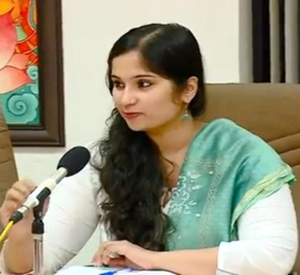 MEERA KUMAR MENON
MEERA KUMAR MENONNIAS Consciousness Studies Programme
National Institute of Advanced Studies, Bengaluru, INDIA
Meera Kumar Menon is a doctoral research scholar at the National Institute of Advanced Studies, Bengaluru. A passionate student of literature, she holds a Masters in English literature from the University of Hyderabad.
She has completed her graduation in Psychology, Literature and Sociology with Honors in English Studies, from Christ University, Bengaluru. Her current research is focussed on the Mantrvada tradition in Kerala. Narratives, Ambiguity in Language, Metaphors, Phenomenology and Ritual Studies are related areas of interest.
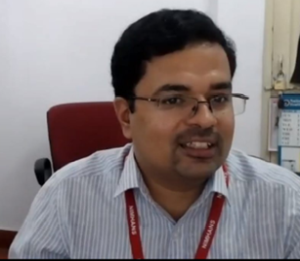 NAREN RAO
NAREN RAODepartment of Psychiatry
National Institute of Mental Health and Neurosciences (NIMHANS), Bengaluru, INDIA
Dr Naren Rao is an Additional Professor in the Dept. of Psychiatry, National Institute of Mental Health and Neurosciences, (NIMHANS). He has a MD in Psychiatry from NIMHANS and MBBS from Sri Devaraj Urs Medical College, Rajiv Gandhi University of Health Sciences.
His areas of Interest include Cognitive deficits in Schizophrenia, Neuroimaging – Functional and Structural MRI, Positron Emission Tomography, Alzheimer’s dementia etc.
 NEHA AGGARWAL
NEHA AGGARWALICSSR post-doctoral scholar, INDIA
Neha Aggarwal is presently an ICSSR post-doctoral scholar. She has completed her PhD from Jawaharlal Nehru University, Delhi. She has taught psychology at undergraduate and postgraduate levels.
During the COVID-19 times, she served as a volunteer counselor at a telephonic counseling helpline.
Her research areas are Dialogic pedagogy, Death anxiety, and phenomenology.
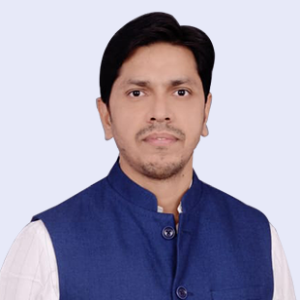 OM PRAKASH DWIVEDI
OM PRAKASH DWIVEDISchool of Liberal Arts
Bennett University, INDIA
Om Prakash Dwivedi is an Associate Professor of English in the School of Management (Liberal Arts Dept). His areas of interest lie in the field of Indian Writing in English, Postcolonial theory, and Literature and Cultural Studies. He is an Advisory board member of the journal, Journal of Postcolonial Writing (Routledge, UK). He is also the Vice-Chair of the international research network, “Challenging Precarity: A Global Network”. His major publications include ReOrientalism and Indian Writing in English (Palgrave, UK); Human Rights and the Postcolonial India (Routledge: India & UK); Indian Writing in English and the Global Literary Market (Palgrave: UK).
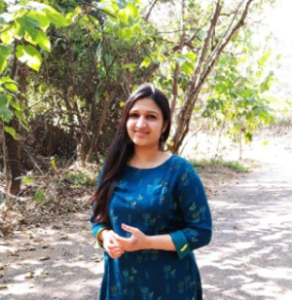 PUSHYA A GAUTAMA
PUSHYA A GAUTAMANIAS Consciousness Studies Programme
National Institute of Advanced Studies, Bengaluru, INDIA
Pushya A Gautama (MD, Ayu) is a Doctoral Scholar at Consciousness Studies Programme, National Institute of Advanced Studies, Bengaluru. Her research interests include narrative and ethnographic study of contemporary institutional (doctor-based) and non-institutional (local health traditions) Ayurveda praxis.
She is currently working on exploring notions of well-being in Ayurveda based on textual Sanskrit and non-Sanskrit sources, and if and how these inform its contemporary praxis.
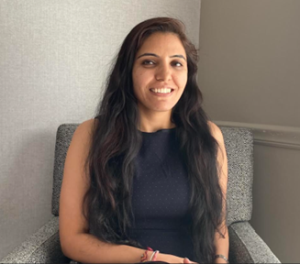 RAJNI MUJRAL
RAJNI MUJRALDepartment of English, School of Liberal Arts and Social Sciences
SRM University AP, India
Dr Rajni Mujral works as Assistant Professor in the Department of English, School of Liberal Arts and Social Sciences, SRM University AP, India. She also worked as Research Associate for ICSSR sponsored project on Disability Studies at The English and Foreign Languages University, Hyderabad, India. Her doctoral research is on Mikhail Bakhtin in the literary context. She has been a participant of various interdisciplinary research programs and has received various national and international fellowships. She has published on Salman Rushdie, storytelling and Carnival/grotesque.
Her research on lying has been translated and published in German. Currently, she is teaching a course on Migration and Citizenship in India.
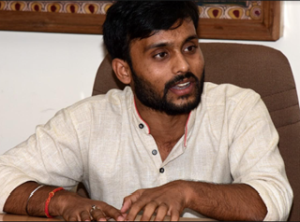 RAKESH KUMAR
RAKESH KUMARNIAS Consciousness Studies Programme
National Institute of Advanced Studies, Bengaluru, INDIA
Rakesh Kumar is an Archaeologist by training. He was working as a Research Associate, Consciousness Studies Programme, School of Humanities, National Institute of Advanced Studies (NIAS), Indian Institute of Science Campus, Bengaluru. (July 2018 – June 2022). He is also pursuing his PhD under the guidance of Prof. Sangeetha Menon, Dean, School of Humanities, Professor & Head, Consciousness Studies Programme, NIAS and Co-guidance of Prof. Vasant S. Shinde, CSIR Bhatnagar Fellow, CCMB Hyderabad & Former Vice-Chancellor, Deccan College Post-Graduate and Research Institute. His PhD topic is “Indigenous Knowledge of Healing Among the Tribes of Nilambur Valley, Kerala: A Study of Cross-Cultural Landscape Across Ethnic Boundaries”. He is primarily interested in focusing his research on social medicine and community health, particularly new epidemiological transitions (among economically and socio-politically marginalised communities in India) caused by transitions such as a shift in food habits, subsistence and settlement patterns, and forced implementation of unplanned developmental programmes.
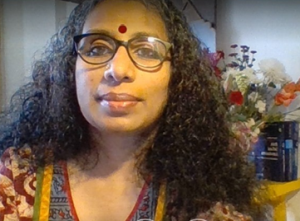 SANGEETHA MENON
SANGEETHA MENONNIAS Consciousness Studies Programme
National Institute of Advanced Studies, Bengaluru, INDIA
Sangeetha Menon is Professor and Head of the Consciousness Studies Programme (NIAS CSP), and the Dean of the School of Humanities at NIAS. NIAS CSP is the first academic group that started in India to study consciousness with an interdisciplinary and a multidisciplinary mandate. She currently heads the NIAS Consciousness Studies Programme and is the Professor and Dean of the School of Humanities at NIAS. Her major area of research is philosophy of psychology. Her expertise is in Indian philosophy, consciousness studies, philosophy of psychology, philosophy and psychology of self, bio- & neuroethics and neurophilosophy. She works with her colleagues at NIAS and collaborators across the world in creating and encouraging a first-person centered approach to understanding consciousness and cognitive capabilities that favours experiential wellbeing for all. One of her primary contributions in consciousness studies is in presenting and engaging with the concept and experience of self from the neurobiological and philosophical point of views, and theorising a ‘self-challenged brain and brain-challenged self’.
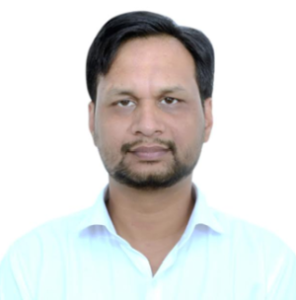 SAURABH TODARIYA
SAURABH TODARIYAFaculty of Philosophy, School of Liberal Arts
Bennett University, INDIA
Dr Saurabh Todariya is currently Assistant Professor of Philosophy at the School of Liberal Arts, Bennett University, Greater Noida. He is also Adjunct Faculty in the National Institute of Advanced Studies, Bangalore. His expertise includes phenomenology, hermeneutics and embodiment Currently, he is interested in exploring the interface between embodiment, phenomenology and health. He has done his M.Phil and Ph.D in Philosophy from Center for Philosophy, JNU. Before joining Bennett University, he was a faculty at SRM University, and Post-doctoral Scholar with the NIAS Consciousness Studies Programme. His Ph.D focused on the phenomenological analysis of time and subjectivity. From the Heideggeian perspective, he explores the relationship between the time and consciousness. Another significant question he explores in his work is how the subjective lived time connects with the historical time of the community. Saurabh Todariya has worked both in academics and social organizations in various capacities before joining NIAS. He has taught in Delhi University College earlier and worked with the India Education Collective, Azim Premji Foundation, Ganga Prem Hospice wherein he attempted to explore the relationship between philosophy, school education and health. He has published the articles in the various peer reviewed journals like JICPR Springer, Kritike, Journal of South Asian History and Culture, Routledge, EPW. Besides, he regularly presents the papers in various National and International Conferences.
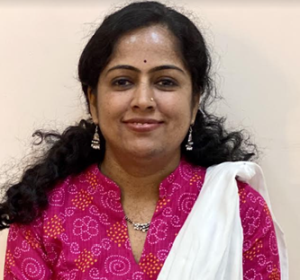 SHANTALA HEGDE
SHANTALA HEGDENeuropsychology Unit, Department of Clinical Psychology
& Music Cognition Laboratory, National Institute of Mental Health and Neuro Sciences (NIMHANS), Bengaluru, INDIA
Prof Shantala Hegde is Additional Professor (Neuropsychology), Clinical Neuropsychology and Cognitive Neuroscience Centre, and Office- in- charge – Music Cognition Laboratory, Department of Clinical Psychology, NIMHANS, Bengaluru. She is Intermediate Fellow- India Alliance DBT Wellcome Trust (Clinical and Public Health). In 2021 she was Global Ambassador- British Carnatic Choir. She is the Theme Leader and Collaborator of “Singwell” funded by Partnership Grants from the Social Sciences and Humanities Research Council of Canada (SSHRC). Another ongoing project is Understanding the Neural correlates of music and rhythm perception and the effect of Indian music and rhythm based cognitive remediation in Parkinson’s Disease funded by Wellcome Trust India Alliance DBT.
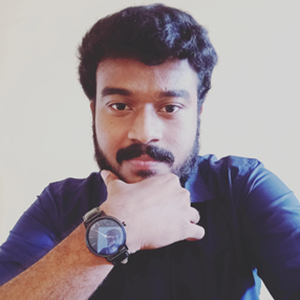 SIDDHU TEKUR
SIDDHU TEKURAGS Group of Schools, Melmaruvathur, Tamil Nadu
INDIA
Siddhu Tekur is working as an English Teacher at AGS Group of Schools, Melmaruvathur, Tamil Nadu. He completed a Master’s in English at the Central University of Punjab in the year 2021. As part of his MA dissertation, he worked on Arthur Miller’s select plays in the context of medical/health Humanities and a chapter has been published by the Department of English at St. Claret College, Bangalore. His research interests include: Health/ Medical Humanities and Postcolonialism and he intends to focus on twentieth-century literary works in India. He has published poetry in several magazines/ anthologies in India and abroad.
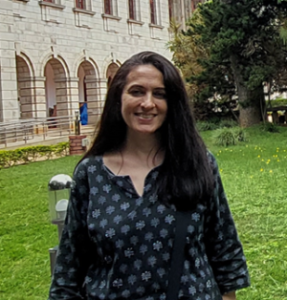 SOPHIE GAUR
SOPHIE GAURIndustrial Design, Ian Gillespie Faculty of Design + Dynamic Media
Emily Carr University, Vancouver, British Coloumbia, CANADA
Sophie Gaur is a faculty of the Industrial Design, Ian Gillespie Faculty of Design + Dynamic Media of the Emily Carr University. She is a cross disciplinary designer who works across the fields of industrial design and visual communication. Having practiced in India for 15 years where she ran a studio, designing exhibitions, interiors, furniture and publications, she moved to Melbourne, Australia in 2003. There her practice focused on book design and teaching at the RMIT University, in the School of Design delivering studios as well as conceptual and skill courses in the Industrial Design Program. Sophie works in the realm of the cultural object, as well as continually exploring a dialogue around the nature of the book. She also makes pin-hole cameras and enjoys the slow, meditative craft of book-binding.
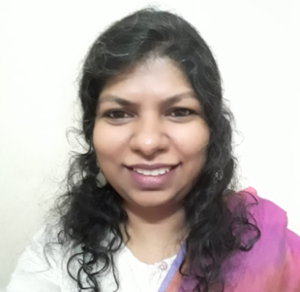 SRIVI KALYAN
SRIVI KALYANInformation Arts and Information Design Practices
Integrated Doctoral Program in Reimagining Transitions
Srishti Manipal Institute of Art Design and Technology (SMI), INDIA
Dr Srivi Kalyan is an artist, designer, educator, writer and researcher. She works at the fluid and exciting intersection of arts, media, education, design, environment and self-reflection. She has a Masters in Arts in Education from Harvard Graduate School of Education, Cambridge and a Masters in Fine Arts from Stella Maris College, Chennai. Srivi has authored and illustrated several books for children and adults and is an award winning writer and illustrator. She also writes on art and art education. She has worked for some of the leading educational/ edutainment organizations designing cutting edge books and media for children and young people on one end, and workshops, curriculum, teacher training modules, interdisciplinary design and delivery of curriculums on the other. Her work through the creation of educational media reaches millions of children across India through reprints of textbooks, and creative products. She is the Founder-Director of Fooniferse Arts Pvt. Ltd. Her personal work can be viewed at www.sriviliveshere.com, www.fooniferse.com. At Srishti Manipal Institute of Art Design and Technology (SMI), she is the Dean for M.Des (Masters of Design) and B.Des. Information Arts and Information Design Practices, M.Des Earth Education and Communication as well as their respective post graduate diploma programs in the Interdisciplinary practices of Law, Environment and Planning at Srishti Manipal. She also leads the Integrated Doctoral Program in Reimagining Transitions. She is the principal investigator at Lila- Artist Research Studio at SMI. She encourages students to discover the heart of their own creativity. Some of the key areas she works with are Arts in Education, Design for Children, Contemplation and Compassion, Teaching and Learning, Ecological Consciousness, Aesthetics and Conservation and Creative Writing. Her doctoral research focuses on Indian philosophical traditions, aesthetics and personal art practice to uncover intrinsic ecological consciousness. Blending expertise in research and practice across multiple disciplines, Srivi brings trans-disciplinary approaches and insights to her work. Her areas of Interest are: Arts Education; Visual Design; Illustration; Earth Education; Conservation, Communication; Art History; Creative Writing; Indian art, aesthetics and philosophy, Ecological Consciousness, Eco-ethics, Eco –philosophy/Ecosophy and Eco-aesthetics, Transdisciplinarity.
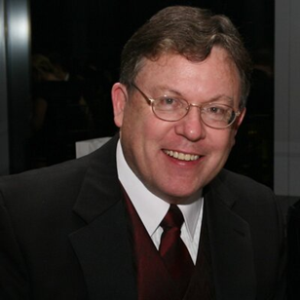 STEPHEN G POST
STEPHEN G POSTCenter for Medical Humanities, Compassionate Care and Bioethics
Stony Brook University, New York, USA
For over 20 years, Dr. Stephen G. Post has been spreading the science of giving and the commitment to the greater good. He has promoted the idea of “give and live better” across the globe. Funding over 50 scientific studies at the nation’s top universities as well as conducting his own research, Stephen is considered the “go to” guy with his uplifting message that when we contribute to the lives of others, give meaningfully, and live by the Golden Rule, we are generally: Happier, Healthier, More Resilient, More Creative, More Hopeful, More Successful. He brings a new level of insight into the ways in which we benefit as givers and a whole lot of practical advice about shifting cultural systems in schools, healthcare, businesses and communities in a positive direction. Stephen G. Post is Professor of Family, Population and Preventive Medicine & Founding Director of the Center for Medical Humanities, Compassionate Care and Bioethics (2008-present). Previously he was Professor of Bioethics in the Department of Bioethics of the Case Western Reserve University School of Medicine (1988-2008). He also taught at the University of Chicago Pritzker School of Medicine. Post is an Elected Fellow of the New York Academy of Medicine (2013- present), and of the College of Physicians of Philadelphia for “distinguished contributions to medicine” (2004- present). He is an elected Fellow of the Hastings Center “for distinguished contribution to ethics and the life sciences” (1994 – present) and of the Kennedy Institute of Ethics, Georgetown University (1990-1995). He has received the United States Congress Certificate of Special Recognition “In Recognition of Outstanding Achievement” (2012); and the Pioneer Medal for Outstanding Leadership in Health Care (shared with Dr. Edmund D. Pellegrino, MD) from HealthCare Chaplaincy New York (2012). More at https://www.stephengpost.com/
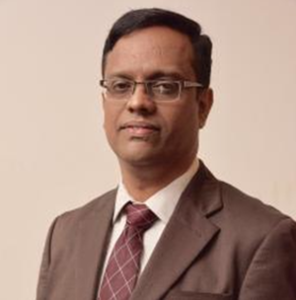 SUDHIR V NAIR
SUDHIR V NAIRHead and Neck Surgery, Dept. of Surgical Oncology
Advance Centre for Treatment Research & Education in Cancer
Tata Memorial Center – ACTREC, Kharghar, INDIA
Dr. Sudhir Nair is an experienced head and neck surgeon, postgraduate teacher, and clinician scientist with over 15 years of experience in the field of head and neck surgical oncology. He is currently a professor of head and neck surgical oncology at Tata Memorial Centre, Mumbai, the largest cancer centre in India. The mission of the Tata Memorial Centre is to provide comprehensive cancer care to all through excellence in service, education, and research. Nair’s clinical research focuses on the predictors, management, and prevention of head and neck cancers, particularly squamous cell carcinoma. He received his MD from Kerala University and was a post-doctoral fellow at the Memorial Sloan-Kettering Cancer Center in New York.
 SUKANYA G
SUKANYA GNIAS Consciousness Studies Programme
National Institute of Advanced Studies, Bengaluru, INDIA
Sukanya G is working as a Research Associate with the Consciousness Studies Programme (CSP) at the National Institute of Advanced Studies (NIAS), Indian Institute of Science Campus, Bengaluru (July 2019– Present). She is enrolled as a PhD scholar at the University of Trans-Disciplinary Health Sciences and Technology(TDU), Bangalore under the guidance of Prof. Sangeetha Menon. Her research topic is “Indigenous Healing Practices among the Adiyan and Mavilan Tribal Communities of Kerala: An Anthropological Study”. Her other research interests include Ethnomedicine, Tribal Studies, Ethnography of Indigenous Communities and Indigenous Knowledge. She has more than 5 years of field-oriented Research experience in Tribal Studies. She worked as a Junior Research Fellow (September 2016-July 2018) and Museum Research Assistant (July 2018-July 2019) at the Kerala Institute for Research, Training and Development Studies of Scheduled Castes and Scheduled Tribe (KIRTADS), Kozhikode.
 TILAK AGERWALA
TILAK AGERWALAIBM Emeritus, Executive-in-Residence, Grove School of Engineering, City College of New York, Adjunct Associate Professor, Pace University, New York
Adjunct Professor, NIAS CSP, National Institute for Advanced Studies, Bengaluru, INDIA
Tilak Agerwala’s career has focused on developing advanced research programs and game-changing strategic initiatives and on bringing innovative computing technologies to market. With the rapid “digitalization” of our world and the transformative impact this is having, Tilak is interested in applying big data, modeling, simulation, analytics, and augmented intelligence technologies to world class science and engineering, education, and leadership development. He is an IBM Emeritus, Executive-in-Residence, Grove School of Engineering, City College of New York, Adjunct Associate Professor, Pace University, New York, Adjunct Professor, National Institute for Advanced Studies, Bangalore, and Member, TKMA Consulting. In his IBM career, spanning 35 years, Tilak held executive positions in research, strategy, advanced development, marketing, and business development. He was part of and led teams that developed and delivered leadership cyberinfrastructure technologies and supercomputers to industry, academia, and the national labs. As vice president, Systems, (2002 to 2013), he was responsible for IBM’s research and advanced technology activities worldwide in future systems hardware and software technologies, including the BlueGene supercomputer. As vice president of Data Centric Systems (2013-2014) his team established a new paradigm for scalable systems leading to the delivery of the powerful supercomputer, Summit, to Oakridge National Lab. Tilak is a member of the NSF Advisory Committees on Engineering, Advanced Cyber Infrastructure, and Business and Operations. He was the 2019 Dr. S. Radhakrishnan Chair Visiting Professor at the National Institute of Advanced Studies, Bangalore India. He is a Life Fellow of the IEEE and a recipient of the W. Wallace McDowell Award from the IEEE Computer Society. He has given well over a hundred invited presentations, keynotes, and distinguished lectures at conferences, universities and national laboratories worldwide. Tilak has a Bachelor of Technology degree in electrical engineering from the Indian Institute of Technology, Kanpur, India and a Ph.D. in electrical engineering from The Johns Hopkins University. From 1975 to 1978, he was an assistant professor of Electrical Engineering at The University of Texas, Austin.
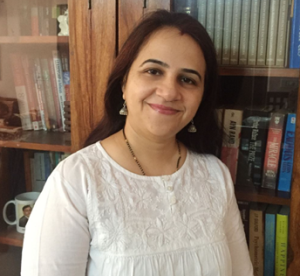 TITHI BHATNAGAR
TITHI BHATNAGARCentre for Leadership and Change (CLC)
Jindal Institute of Behavioural Sciences, Sonipat, INDIA
Dr. Tithi Bhatnagar is an Associate Professor and Deputy Director, Centre for Leadership and Change (CLC). She has a Ph.D. from IIT, Bombay, and is a Certified Positive Psychology Coach (USA), , and did M.A., Psychology from M.L.S. University, Udaipur. She is currently working as Associate Professor and Deputy Director, Centre for Leadership and Change (CLC). She is responsible for Professional and Teachers Training Programs conducted at the Jindal Institute of Behavioural Sciences, O.P. Jindal Global University, and is the Executive Director of the Centre for Leadership and Change. She is also a member of the JIBS Ph.D. Committee. She is a Psychologist by training and a Well-being and Happiness researcher and teacher by profession. Her doctoral research was in the area of Subjective Well-Being (SWB) from the Indian Institute of Technology, Bombay. Her professional experience is a mix of industry, freelance consulting, academics, training, and advisory roles. In her tenure with Infosys, she has worked on projects involving title holders, executive board members, and founders. Prior to joining JGU, she was leading the School of Humanities and Social Sciences at G.D. Goenka University. She also serves on an Industry Research Board as a Social Scientist for Stem Cell Research, and has been invited as Subject Matter Expert on University Academic Council on Curriculum Designing for UG and PG Psychology Programs. A Gold and Silver Medallist for her Masters and Bachelors respectively, she is a Certified Positive Psychology Coach by none other than Dr. Robert Biswas-Diener (USA). She is a member of the American Psychological Association (APA), the International Society of Quality-of-Life Studies (ISQOLS), and the Academic Council of the United Nations (ACUNS). Her research interests are Positive psychology, Quality of Life, Happiness, Psychometrics, Leadership
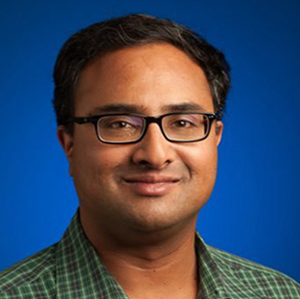 UNNI NARAYANAN
UNNI NARAYANANGoogle, California, USA
Dr Unni Narayanan is an experienced Silicon Valley executive who leads teams at scale to build innovative technologies which are at the heart of groundbreaking consumer products. Currently, he is a Senior Director of Engineering at Google where he leads a 500+ person organization that is responsible for delivering the Google Assistant on all major surfaces including mobile phones, displays, speakers, television, automobile and all wearables. Prior to Google Unni held executive roles at a broad range of successful technology startups including MindPirate which was acquired by HP in 2014. He holds a Doctor of Philosophy (Ph.D.), in Computer Science from the University of Illinois Urbana-Champaign. Unni is passionate about the intersection of technology, philosophy, music, and spirituality.
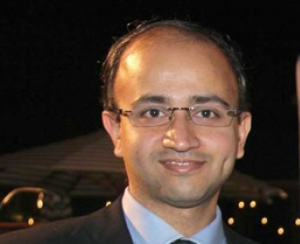 URVAKHSH M MEHTA
URVAKHSH M MEHTADepartment of Psychiatry, National Institute of Mental Health & Neurosciences (NIMHANS), Bengaluru, INDIA
Dr Urvakhsh Meherwan Mehta, MD, Ph.D. is Additional Professor of Psychiatry, in the Department of Psychiatry, National Institute of Mental Health & Neurosciences (NIMHANS). He is also an Adjunct Professor at the NIAS Consciousness Studies Programme. His current work includes: supervising psychiatric clinical care in outpatient, inpatient and emergency settings, training postgraduates across a diverse field of mental health disciplines, and research in clinical neurosciences with a focus on schizophrenia and bipolar disorder. His Ph.D. (Doctor of Philosophy) was in “Genetic, Brain Connectivity and Cognitive Predictors of Treatment Response in Schizophrenia” from the National Institute of Mental Health & Neurosciences (NIMHANS), Bangalore (2020). He took M.D. (Doctor of Medicine) in Psychiatry from the National Institute of Mental Health & Neurosciences (NIMHANS),in (2010, and M.B.B.S. (Bachelor of Medicine, Bachelor of Surgery) from the Mysore Medical College & Research Institute, Mysore, affiliated to the Rajiv Gandhi University of Health Sciences (RGUHS), Bangalore. He has developed (2006) SOCRATIS (Social Cognition Rating Tools in Indian Setting) as a part of his MD thesis. Social cognition is known to be culturally salient. It also has tremendous heuristic and intervention-based potential in schizophrenia, autism and other major psychiatric illnesses. A culturally appropriate set of tests to assess social cognition in the Indian setting; called Social Cognition Rating Tool in Indian Setting (SOCRATIS) was developed and validated. The social cognition domains included were theory of mind, attributional styles and social perception. He wishes to pursue a career with a balanced blend of psychiatric clinical care and translational research. His area of research interest has been to study schizophrenia and related psychotic disorders from the perspective of these being a social brain disorder. Specifically, he is keen on exploring the neurobiological basis of social cognition impairments in psychotic disorders (e.g., mirror neuron dysfunction) and developing novel methods to modulate brain regions involved in these complex cognitive abilities and thus enhance them by using non-invasive brain stimulation and other techniques. He takes keen interest in public and student engagement on the theme of mental health and its causal underpinnings. He is also an avid music and sports enthusiast.
SESSION 2
SHANTHALA HEGDE
CAN THERE BE ANY HEALING WITHOUT EMPATHY?
Empathy is the ability to share the feelings of others. It is an important component of our emotional and social lives. Any healing process requires intense dialogues between the individual seeking help and the individual providing the help. Without the genuine connection between individuals, true communication, treatment or any healing process would fail at some point. The ability to empathise and intensity of this felt emotion may have individual differences and often may play a role in determining the level of occupational burnout in health professionals, especially in mental health professionals. Empathy for instance is a core component in psychotherapeutic alliance between patients and the therapist. The concept of empathy has been a topic of intense discussion and debate by philosophers to behavioural scientists. Recent neuroscientific studies are not only exploring the neural basis of empathy but also examining how experience of empathy can be modulated by engaging motivational systems or by cognitive control circuits in the brain. Interesting work in the area of neuromusicology and music therapy is examining how external stimulation such as music can alter and modulate the experience of empathy in the context of therapist-client interactions. In this lecture, I will dwell upon this concept further and highlight the need for health professionals to focus on the role of empathy in humanising the process of treatment and healing.
TITHI BHATNAGAR
FROM DISTRESS TO WELL-BEING: INSIGHTS FROM POSITIVE PSYCHOLOGY
Positive Psychology is the science of leading a rewarding and fulfilling life. It entails the important science of Subjective Well-Being (SWB) that explores the full range of psychological well-being in a way that focuses on factors that keep one from being depressed and lead one to become happier. In a seminal research paper, Myers and Diener (1995) found that Psychological articles researching negative states outnumbered those examining positive states by a ratio of 17 to 1. Researchers also agree that the absence of ill-health or negative affect will not generate as much happiness and satisfaction as will generate a positive affect. The present talk begins by highlighting the emergence of the Positive Psychology movement and offers very briefly the historical, theoretical, and philosophical underpinnings of Positive Psychology. A brief overview of the discipline of Positive Psychology and the paradigm, traditions and frameworks of well-being will be discussed from a cross-cultural perspective (Eastern and Western perspectives). The concepts of flourishing and positive human health will be discussed further along with the concepts of hope, optimism, wisdom, gratitude, spirituality, meaning, and others from the field of Positive Psychology. The talk will highlight the relationship between the two concepts of Psychological Well-being and Psychological Distress and emphasize the importance and effectiveness of promoting positive functioning through various interventions. The significance of Positive Psychology concepts in the realm of health will be discussed, with a special focus on the concept of post-traumatic growth being addressed in light of adapting positively to life adversities – how do people deal with a health crisis and maintain a sense of well-being. The talk will conclude by emphasizing the implications of Positive Psychology for health and well-being.
SESSION 3
SAURABH TODARIYA
DISORIENTATION AND NARRATIVE: TOWARDS THE PHENOMENOLOGY OF ILLNESS
Most of the studies on health centers on the third-person, scientific/objective understanding of illness which ignores the subjective, experiential dimension of it. This paper will explore the phenomenological account of the illness interpreting it as the feeling of disequilibrium and not being-at-home. The paper argues that the experience of illness can be interpreted as the disorienting experience for the embodied subject who encounters the world as affordances. Hence, the illness is experienced as the loss of the affordances for the embodied subject. Based on Merleau-Ponty’s analysis of the lived space, we will argue that experience of illness makes it difficult for the embodied subject to cope up with the environment and the world no longer experienced as the horizon of possibilities. Hence, the experience of illness is fundamentally experienced as disorientation where the embodied subject is unable to orient its activities and realize its goals with respect to the future. The inability to experience the future as the horizon of possibilities results in the disruption of narrative coherence for the experiencing subject. We will show that the experience of disorientation during illness manifests itself at the intersubjective level as the inability to form coherent narrative. According to Ricouer, self is basically the time experienced in the form of narratives or the stories we tell ourselves. However, the experience of Illness as disorientation disrupts our ability to form coherent narratives and result in the loss of subjective well-being.
Keywords: Illness, Disorientation, Embodied subject, Narrativity
MĀRA GRĪNFELDE
HEALING AT A DISTANCE: PHENOMENOLOGICAL PERSPECTIVE ON THE TRANSFORMATION OF THE PATIENT-PHYSICIAN RELATIONSHIP IN TELECONSULTATION
The global crisis of Covid-19 pandemic has considerably accelerated the use of the teleconsultation (consultation between the patient and the doctor via video platforms). Taking into account its widespread use, it is important to consider what kind of impact this form of clinical interaction has on the quality of care. Does it contribute to the quality of care crisis in medicine, in which patients perceive physicians as not sufficiently empathic towards their suffering? In the tradition of phenomenology of medicine this quality of care crisis has been said to stem from the physician’s exclusive focus on the patient as a mere physical body needed to be fixed (Toombs 1992; Carel 2016; Svenaeus 2021), which leads to the objectification of the patient as a disease entity and the accompanying feelings of alienation and the loss of agency on the part of the patient. In my lecture I will consider if teleconsultation contributes to the objectification of the patient and what kind of potential impact it has on the patient-physician relationship and the quality of care. I will approach this issue from the phenomenological perspective combining both insights from the phenomenological tradition (concepts of the lived body and object body) and the results of my phenomenologically informed qualitative research study of the patient experience of teleconsultation, using “Phenomenologically Grounded Qualitative Research” methodology (Køster Fernandez, 2021). I will argue that, surprisingly, it is the patient’s lived body and not the object body which is at the center of teleconsultation, leading to the increased sense of patient’s agency (control and responsibility) and the transformation of the asymmetrical patient-physician relationship, opening up the possibility for more empathetic clinical relationship.
This work is prepared within Postdoctoral research project “Healing at a distance: phenomenological analysis of patient experience of clinical encounter in telemedicine” (1.1.1.2/VIAA/4/20/622).
SESSION 4
MANINDRA THAKUR
EXPERIENCING INSTITUTIONS OF MODERN MEDICINE – AN AUTO-ETHNOGRAPHY
This paper intends to reflect upon my personal experiences of being in three different hospitals (AIIMS, RML, MAX7) as an attendant and as a patient. These hospitals are concrete forms of a knowledge tradition that operates on the organising principle of Cartesian duality. Human beings are psychologically and physically most vulnerable when the line between life and death is blurred. I have had three such experiences, and fortunately, I had an opportunity to engage with the doctors and fellow travellers philosophically every time. Auto-ethnography makes it possible to reflect upon these experiences and connect the dots between knowledge and practice. This paper will examine the interplay between knowledge, power and the market, which constitute the context of these experiences. The relationship between the patient and doctor is mediated by these variables and produces fear, humiliation and distrust, which are antithetical to healing. The paper will reflect upon Munnabhai MBBS, a Hindi film that critiques Cartesian duality’s medical consequences. It will also refer to the counter viewpoint reflected in Doctor House, an American serial on this theme.
NAREN RAO
ETHICAL DILEMMAS AND CHALLENGES IN NEUROPSYCHIATRY: A CLINICAL PERSPECTIVE
The recent advances in behavioral science and neuroscience have generated novel insights into human behavior, agency, and judgment that could have profound implications on ethical concepts. The conscious and deliberate choices by an individual may have implicit cognitive processes that can be manipulated, questioning the very concept of free will. The progress in pharmacological and neurostimulation interventions also calls for serious ethical analysis. The interdisciplinary field of neuroethics is at the intersection of neurosciences, radiology, cognitive psychology, philosophy, and law and tries to examine the ethical questions that span across disciplines. The field of neuroethics deals with both the ethics of neuroscience and neuroscience of ethics and their interactions. The clinical diagnosis and treatment of neuropsychiatric diseases pose unique challenges to ethical concepts as they are frequently associated with the questionable mental capacity for rational and moral decision-making. A practicing clinician frequently encounters ethical dilemmas and challenges such as requests for assisted suicide, balancing between patients’ autonomy to refuse treatment, and the collective interest of the society in preventing public harm, research, and treatment of patients with altered consciousness. This talk will discuss some of these ethical dilemmas and challenges using clinical case scenarios from neuropsychiatric practice.
SESSION 5
ARYA SURESH
MENTAL ILLNESS AND GRAPHIC MEDICINE: CRAFTING A VISUAL LANGUAGE OF CRITIQUE
Comics as a hybrid medium combines the power of the word and the animacy of visuals. Graphic medicine, a novel repertoire and an emerging subgenre of comics, thematizes health, illness, body, and caregiving and also annotates the phenomenological reality of an individual’s tryst with a medical condition. Put simply, graphic medicine narrated by the sufferers, healthcare professionals, caregivers, or impassioned onlookers, draws and thus visualizes various illnesses ranging from physical through mental to neuro-degenerative illnesses. As a highly interdisciplinary area of study, graphic medicine interprets health and illness from various humanitarian discursive backgrounds to achieve the predominant objective of humanization of healthcare. To this end, graphic medicine scholarship analyzes the illness conditions from phenomenological, literary, philosophical, and sociological perspectives among many others. By engaging with the relevant theoretical tenets of these various disciplines, graphic medicine scholarship explores illness narratives in graphic form from the marginalized perspectival narrations such as that of a patient or care-giver. The mental illness narratives in graphic medicine are noteworthy for their unique use of metaphors which externalize various mental conditions, for their stated agenda to destigmatize mental disorders as well as for their ability to talk back, critique, or oppose the reductive biomedical discourses and practices. Close reading and annotating various panels from the critically acclaimed graphic medical narratives such as Rachel Lindsay’s Rx (2018), Ellen Forney’s Marbles (2012), and Clem Martini and Olivier Martini’s Bitter Medicine (2010), this presentation elaborates on how graphic medical narratives using various affordances of comics craft an idiosyncratic visual language for narrating mental illness experiences, thus enabling a critique of the extant psychiatric (treatment) practices.
RAJNI MUJRAL
STORYTELLING AND NARRATIVE HEALING IN DISABILITY DISCOURSE
This study examines storytelling and narrative healing as an alternative practice of healing and care in the discourse on disability. Drawing on the narratives that represent illness and disability in India, the paper discusses that the oral storytelling mode- based on speaker-listener association becomes an alternative healing practice that provides care beyond organized help. For this, the study analyses instances from two narratives on disability in India. In Jerry Pinto’s novel Em and the Big Hoom, the character Em feels at home at a government hospital where she could share her experiences with the staff. In Indra Sinha’s Animal’s People, the character named Animal records and shares his experience of being disabled in an abled society. He comes to reconcile his sense of disability by sharing his memoirs. Both the characters deal with the stigma of disability and come to terms with their embodied experiences through the act of storytelling. In a system that provides organized help, storytelling or sharing one’s own experiences becomes a significant but unrecognized method of coming to terms with one’s own self. As one shares one’s experiences with a receptive audience, one realizes one’s own self. Telling one’s story shifts the focus from the visual to the aural and thus provides solace from the oppressing and stigmatizing stares that the disabled feels. The ‘hmm and huu’ of the listener is the alternative care that hospitals fail to provide. Clinical regulatory practices project forth a discourse of cure for disability and do not give voice to the experiences of the disabled. The study aims to recognize and support storytelling as an alternative healing technique that provides space for the disabled to share their experiences and thereby becomes a mode to spread awareness about their experiences.
Keywords: Illness; narrative healing; storytelling; care; disability
SIDDHU TEKKUR
EMPIRE, DISEASE AND HOME IN MANJULA PADMANABHAN’S PLAY “HARVEST”
Padmanabhan’s literary text ‘Harvest’ depicts the dehumanizing aspect of neocolonialism on third world human bodies. It shows the medicalization of race and racialization of medicine. The play centers on the theme of organ-selling in India. Almost all the characters come under the control of the rich people of the First World countries, except for Jaya, who towards the end, uses her own body as a form of resistance. In the context of medical humanities, the play has been studied in terms of bio-slavery, biomedical imperialism, commoditization of the third world bodies and technocratic world created by the privileged. This scholarship has paid little attention to the setting of the play in terms of medical geography. I read the play alongside Howell’s concept of “medical moral geography”; Venkat’s theorization of “curative imagination” and Anjuli Fatima’s idea of “disease poetics”which explores the aspects that dehumanizes the colonized and critiques everything from surveillance to data collection and quarantining that seems permissible under the Empire. I focus specifically on how ‘home’ as a space is regulated by the neo-colonial medical regime. In doing so, I argue that we could account for the limitations of ‘medical moral geography’ as being merely about public spaces. Whereas Howell’s theorization of the concept relies on Burton’s encounter of African landscape as a public space, Padmanaban’s depiction of the power relations that regulate the ‘home’ offers us a way to extend Howell’s theorization into supposedly private spaces as well.
Keywords: home, medical moral geography, disease poetics, curative imagination
AMALA POLI
THE GLOBAL SLEEP CRISIS: INTERVENTIONS FROM THE HEALTH HUMANITIES
This talk proposes to examine the current approaches in the health humanities in the context of a global sleep crisis. To realize its claim as an interdisciplinary field, the health humanities must seek to engage with the production of knowledge in disease categories and the public imagination. The field is well situated to question the history of knowledge and the politics of legitimacy that informs modern medicine: what systems and sources of knowledge about the body remain peripheral, othered and outside the domain of formal scientific and diagnostic categories? Discussions about a global sleep crisis have found greater momentum since Covid-19, leading to further opportunities to explore the lack of clarity around sleep disorders. Such a lack of clarity exists due to the muting of the physiological in understanding sleep. Instead, value-laden categories ranging from sleep as absence, dreaming and more recently, sleep as the last line of defense in capitalism have constituted the primary modes of discourse around sleep. To this end, I propose taking up narrative as a source of evidence to argue for a radical reimagination of what constitutes valid knowledge about sleep paralysis. Why sleep paralysis becomes a valuable model for study is its long history of interpretation and imagination through sources that are not constrained by scientific methods, including and not limited to culture-specific terminology, myths, literature, and modern film and television. Broadly, these questions will aim to highlight valuable ways in which the health humanities can engage with sleep paralysis. The study of sleep paralysis will form a model for understanding other parasomnias through narrative.
SESSION 6
GEORG NORTHOFF
THE SELF – A NEUROPHILOSOPHICAL AND NEUROPSYCHIATRIC APPROACH
The self is the core of our human subjectivity which is altered in psychiatric disorders like schizophrenia and depression. However, the exact characterization of the self and its changes remain yet unclear. Relying on philosophical definitions and neuroscientific findings, I characterize the self by a point of view within the world which can be characterized in both spatial and temporal features like dynamic and topography. Psychiatric disorders like schizophrenia and depression show changes in exactly these spatial topographic and temporal-dynamic features in both their brain and experience which, in turn, reflects an altered point of view within the world leading to abnormal behavior and symptoms.
ANA LAURA FUNES M.
THE PHILOSOPHICAL CASE FOR MEDICAL PLURALISM: TOWARD AN ECOLOGICAL-CROSS-CULTURAL-DIALOGICAL MODEL OF HEALING
Medical pluralism refers to the use of different, sometimes epistemologically divergent, medical systems in the treatment of disease. Historically, medical pluralism has been the norm, especially in cultures of the Global South. However, with the advance in biomedicine and the perception of its efficacy in treating life-threatening conditions, technoscientific treatments in medicine are presented by global institutions as the only and best way to prevent and heal diseases. Prioritizing the objectification of our bodies through ever more detailed monitoring devices, biomedical logic tends to erase the particularity of our bodies by transcribing them into data to treat them as cases. It monopolizes strategies of public health, minimizing the personal and cultural experience of individuals, as well as ignoring the psychological, social, and environmental aspects of disease and healing. Its authority lies in the idea that it is highly successful in the control or elimination of diseases rather than in the ecological understanding of their appearance or in their holistic treatment. This talk presents the philosophical case for medical pluralism and offers a critique of the type of authority attributed to the alleged success of the biomedical control of our bodies. Drawing from Feyerabend’s political philosophy of science, Gadamer’s hermeneutics of the healing arts, Irigaray’s philosophy of breathing, Sāṃkhya’s philosophy of nature, and the Yogavāsiṣtha’s theory of disease, I offer an ecological-cross-cultural-dialogical model of healing where disease is not constructed as an immediate threat but rather, as an existential questioning to our modes of relating to nature.
SESSION 7
SOPHIE GAUR
THE DISCURSIVE BODY: CONVERSATIONS WITH THE PHYSICAL SELF
This presentation is a sharing of emerging research—explored and extended within the context of a design studio. It addresses the ways in which we know our bodies through science, myth, intuition and feeling. It questions the ways in which we sense, see, listen and make deep knowledge and meaning of ourselves. Design offers methods to explore these conversations and expand the ways in which we build an epistemic knowing of our bodies.
OM PRAKASH DWIVEDI
WEAK PLANET AND HUMAN VULNERABILITY: THE ECOPRECARIOUS WORLD IN SWARGA
By far the largest biodiversity of the earth is to be found in its soil. The phenomenological dimension of humans’ health and its relationship to soil pervades much of the ancient Indian traditions. Yet, the modern-world’s notion of progress and the attendant negligence towards soil has made it a serious threat to human’s health, even leading to transgenerational trauma, questioning and blurring the notion of planetary habitability. Seen through the lens of the global soil risk, the future of human beings is thus rendered a “psychosocial space of uncertainty.” In this paper, I trace the precarious relationship between soil contamination and human health as represented in Ambikasuthan Mangad’s novel, Swarga (2017). Drawing from Wai Chee Dimock’s conceptualization of “Weak Planet” and Pramod K. Nayar’s notion of “ecoprecarity”, this paper will argue that the engendering of soil risk catalyses the production, structuration and proliferation of a risk society. The contamination of water, soil, and food had embedded trauma in the everyday experience of the natives, resulting in genetic mutations, problematizing healing, and negating the very notion of the elemental forms of biological life as imagined by the medical sciences. Through a turn to the narratives of ecodisaster in Swarga, and questioning the corporate-state nexus, this paper will develop a template of interdependent ecology for the planetary well-being.
Keywords: ecoprecarity, weak planet, Swarga, soil risk, transgenerational trauma, vulnerability, interdependent ecology
SESSION 8
URVAKHSH MEHTA
NEW FRONTIERS IN MENTAL HEALTH CARE AND COMMUNICATION: HOW THE PANDEMIC HAS RESHAPED PSYCHIATRIC PRACTICE
The pandemic has brought about unique challenges in caring for the mentally ill. Besides the fact that the viral infection and its immediate medical and psychosocial sequelae have increased the mental health burden, there is also a new challenge in providing sustained and quality access to care for individuals who have already been seeking help for their mental health difficulties. Moreover, communication is a critical element of psychiatric practice – long hours are spent reviewing history, examining thoughts, emotions, and behaviours, sharing formulations, and providing medical guidance and therapy with individuals seeking help. Social distancing, shortened clinical interviews, the universal use of masks are just a few of the challenges in psychiatric communication. Digital psychiatry, a relatively novel branch of psychiatry until 2019, has witnessed a stratospheric growth in the last few years. Has it been able to bridge this ever increasing communication gap? In this lecture I present the unique scope and challenges of digital psychiatry, telemedicine, video-based consultations, and preliminary neurophysiological data on the similarities and differences in neural responses to virtual and real communication.
SRIVI KALYAN
TOGETHERNESS – REFLECTIVE HEALING THROUGH ART AND DESIGN
“Akth”* – an online project is envisioned as a space of togetherness to build hope and resilience through art and design; a space that is part tribute, and part healing; a space that gives tools for reflection, and gently unfolds the tapestry of life in crisis in all its complex beauty and terribleness so people can find moments of pause, that will enable them to move forward, and care for themselves. A group of 15 artists, designers and educators who would like to bring our support to everyone in this time of crisis through the healing power that art and design can offer came together in 2021 in the time of the pandemic to envision this space as an online forum, asking ourselves what it meant to be a community. Death and life, grief and joy are inexplicably entwined in our world, in our humanness and in the way we choose to relate with those whom we love more than ourselves and with random strangers; the way we relate with our pets and with wildlife. At a time when tensions rise, grief and pain pour, anger at the meaninglessness of it all begins to affect everyone, we hope to bring wisdom, discernment, story-making and gentleness through our work and hope it can offer a space for healing and dialogue.
* Akth is currently a work in progress.
SESSION 9
PUSHYA A GAUTAMA
HUMANIZING HEALTHCARE: INSIGHTS FROM PARAMPARIKA VAIDYAS IN RURAL BENGALURU
Humanization of healthcare is defined as a state of well-being, involving affection, dedication, respect for the other and a consideration of the person as a complete and complex being. Paramparika vaidyam refers to culturally situated diverse healing traditions that are practiced by indigenous healers, also known as paramparika vaidyas. This paper will discuss, using case studies of three paramparika vaidyas in rural Bengaluru, how the notion of healing and well-being is coevolved by the vaidya, and the health-seeker approaching them and the role that their mutually occupied socio-cultural contexts play in such coevolution. It also tentatively explores what insights pertaining to the humanization of contemporary healthcare and education can be drawn from the case studies discussed.
Keywords: paramparika vaidyam, social, cultural, healing, humanization, healthcare
NEHA AGGARWAL
A DIALOGUE-INFORMED APPROACH TOWARDS MEDICAL CARE: AN OVERVIEW OF MENTAL HEALTH PRACTICE
The literature on dehumanization in medical practice reveals various ways of its occurrence such as lack of emotional care, techno-mechanical ways of treating the patient and ignoring the subjectivity and embodiment of the illness. At the epistemological level, the roots of such practices lie dormant in the nature of the medical science that works upon the biomedical model and views a person only as a body. The theory of dialogism by Mikhael Bakhtin views such a practice as morphological, devoid of the polyphonic and dialogic self that a person is. The dialogic theory reveals the tripartite relationship between the doctor, the patient and the illness- Where a sign is objective medical criteria, symptoms offer the scope of subjective interpretation based on the medical professional’s skill and experience, the patient’s context and personhood, the nature of illness as manifested in the patient, and the interaction/ exchange between these three. Using this theory, I present the missing voices of society, culture and embodiment in the dominant discourse of psychiatry and mental health practices that stigmatize a person through labelling and decontextualized diagnosis. In the end, I would also talk about the micro ways in which the medical field is trying to humanize itself and the challenges that it faces in the Indian context.
Keywords: Dehumanization, Psychiatry, mental health practice, Dialogism, social psychology, medical science
SUKANYA G
PLURALISTIC HEALTH CARE APPROACHES OF ADIYAN TRIBE OF WAYANAD DISTRICT, KERALA, INDIA
A society with multiple medical systems with its own practices and beliefs is known as medical pluralism. The study looks into the pluralistic health care approaches of the Adiyan Tribal community of the Wayanad district. As in the case of most indigenous healing traditions, the notion of health and healing amongst the Adiyans cannot be fully understood independent of their unique socio-cultural contexts. Within these, notions pertaining to illness causation play an important role in determining which health care system Adiyans chooses to approach. For instance, there is a belief amongst the Adiyans that when an individual becomes afflicted by a malevolent spirit called pagadhi the resultant illness can only be cured through the performance of a specific ritual, gaddika. The gaddika is performed by a traditional healer known as the kannaladi, alongside which herbal medicines are also given. In contrast, when individuals suffer from diseases such as cancer, members of the tribe prefer to seek biomedical health care. Findings from the fieldwork revealed that many members of the Adiyan community do not prefer biomedical care for most common ailments because it fails to provide culturally meaningful explanations for their illness or its cure. While the current healthcare practices of the Adiyans are undoubtedly diverse, these tend to remain in functionally isolated silos, as demonstrated above. This paper suggests that the pluralistic coexistence of healthcare systems within the Adiyan community cannot be achieved independent of their culturally embedded contexts.
Keywords: Adiyan, plural healthcare, culture, traditional healing, biomedicine
RAKESH KUMAR
THE ECOLOGY OF INDIGENOUS HEALING
Indigenous health management provides a comprehensive framework for maintaining social order as well as physical, spiritual, and cultural well-being. As a result, indigenous people devote a significant amount of time and effort to maintaining their health or preventing and safeguarding themselves from future ill-health. Indigenous people are primarily concerned with avoiding ill-health, and this concern extends to subsistence, social, and cultural practices. The rationales for the prevention of diseases and ill-health include spiritual and moral components, as well as ecology, worldview, and belief system, all of which are intertwined into meaningful rituals. In this paper, the author will discuss why worldview, religious background, cultural belief, and cognitive mechanisms are crucial to indigenous people’s concept of health and healing mechanism.
MEERA KUMAR MENON
APPROACHING THE UNAPPROACHABLE: BODY MIND AND SPIRIT IN MANTRAVADA NARRATIVES
Mantravada often described as sorcery or witchcraft is literally the use of Mantras. In Kerala, the southernmost part of India, Mantravada is practiced as a faith healing ritual to cure various physiological and psychological ailments, and also for other personal reasons such as success in business and relationships. Although a very large number of people approach the practitioners of Mantravada, it is characterized by secrecy and stigma. This talk will look into the exotic and largely unapproachable world of Mantravada faith healing, and explore its philosophy and practice as an indigenous tradition. Challenging the cartesian dichotomy, Mantravada offers an alternative perspective of understanding the mind, body and spirit as a continuum. The focus of this presentation will be on ambiguity in the narratives of Mantravada and the phenomenology of its ritual practices, and how they conjure a unique space of healing. Data collected from field work is scrutinized employing interpretative phenomenological analysis as the research methodology. While traditions such as these are often looked upon as culturally significant, but as making little contribution to the field of medicine, this study will argue that there are some valuable insights to be gained from this alternative faith healing paradigm.
SESSION 10
STEPHEN G. POST
DIGNITY FOR DEEPLY FORGETFUL PEOPLE
The test of medical ethics and compassionate care is seen in tending to individuals with dementia. One might well hear that they are “gone, husks, shells, empty,” and these negative metaphors close them off from the Beloved Community of Humanity. “Dementia” is a term of decline that separates them from us because they lack linear rationality, the reason of “doing” that in western ethics affords them moral status and standing. However, linear reason is morally irrelevant (contra Kant, Locke, etc.,). What matters are 1. consciousness and 2. symbolic rationality, or the reason of who we are as situated in meaningful symbols. These qualities are always there, along with self identity however opaque. This presentation will ask us to notice these aspects of continuing narrative despite the “hypercognitive” bias has excluded deeply forgetful people from equal consideration and compassionate care. Hindu and Buddhist views of mind and identity will be engaged with. As an epilogue, Dr. Post will briefly describe the goal of the Center for Medical Humanities, Compassionate Care, and Bioethics, with its focus on medical student formation in compassionate care and its recognition with the National Award for Professional Identity Formation bestowed by the US National Medical Honors Society Alpha-Omega-Alpha.
SUDHIR NAIR
CANCER CARE AND RESEARCH – LOOKING BEYOND SURVIVAL OUTCOMES
For many of us who are fortunate enough not to be afflicted by cancer, the purpose of cancer treatment is a single point of cure from the disease. However, for the cancer survivor, though survival is of primordial interest, it is a continuous process with no definite endpoint. Unfortunately, most practitioners of modern medicine ignore this vital facet of the patient’s life. Over the years, the scientific community has designed various measuring instruments like the quality of life to supplement cancer treatment outcome measures to address some of these issues. However, these instruments are intended for clinical use and reflect patient-reported quality of life (QoL) parameters in defined time intervals. Being a clinician-scientist, the doctor in academia often tends to objectify patients and their problems so that it will be easy to measure and report the treatment outcomes in a defined format. Unfortunately, this is a double-edged sword. Though they are precise in measuring the defined treatment outcomes, they unintentionally ignore associated unresolved issues for the patients. For example, the morbidity of cancer treatment can be significant and long-lasting. Similarly, the patients also face financial, social, and psychological problems. In this symposium, I shall try to bring out some real-world issues faced by our patients, which are often ignored in medical literature while reporting outcomes of clinical trials. Hopefully, these discussions shall lead to developing more comprehensive outcome reporting instruments.
| 28 July 2022 | |
| Inaugural Opening Session with Words of Welcome by NIAS Director 10.00 to 10.30 am, IST | Sangeetha Menon, Shailesh Nayak |
Chairperson: Sangeetha Menon Discussion | Shanthala Hegde: Can there be any healing without Empathy? Tithi Bhatnagar: From Distress to Well-Being: Insights from Positive Psychology |
Chairperson: Sangeetha Menon Discussion | Saurabh Todariya: Disorientation and Narrative: Towards the phenomenology of Illness Māra Grīnfelde: Healing at a Distance: Phenomenological perspective on the transformation of the patient-physician relationship in teleconsultation |
Chairperson: Saurabh Todariya Discussion | Manindra Thakur: Experiencing Institutions of Modern Medicine – An Auto-ethnography Naren Rao: Ethical dilemmas and challenges in neuropsychiatry: A clinical perspective |
Chairperson: Sangeetha Menon Discussion | Arya Suresh: Mental Illness and Graphic Medicine: Crafting a Visual language of Critique Rajni Mujral: Storytelling and Narrative Healing in Disability Discourse Amala Poli: The Global Sleep Crisis: Interventions from the Health Humanities |
Chairperson: Sangeetha Menon Discussion | Georg Northoff: The Self – a neurophilosophical and neuropsychiatric approach Ana Laura Funes: The Philosophical Case for Medical Pluralism: Toward an Ecological-Cross-cultural-Dialogical Model of Healing |
| 29 July 2022 | |
Chairperson: Saurabh Todariya Discussion | Sophie Gaur: The Discursive Body: Conversations with the physical self Om Prakash Dwivedi: Weak Planet and Human Vulnerability: The Ecoprecarious World in Swarga |
Chairperson: Sangeetha Menon Discussion | Urvakhsh Mehta: New frontiers in mental health care and communication: How the pandemic has reshaped psychiatric practice Srivi Kalyan: Togetherness – Reflective healing through Art and Design |
Chairperson: Saurabh Todariya Discussion | Pushya A Gautama: Humanizing healthcare: Insights from paramparika vaidyas in rural Bengaluru Neha Aggarwal: A dialogue-informed approach towards medical care: an overview of mental health practice Sukanya G: Pluralistic Health care Approaches of Adiyan Tribe of Wayanad district, Kerala, India Rakesh Kumar: The Ecology of Indigenous Healing Meera Kumar Menon: Approaching the Unapproachable: Body Mind and Spirit in Mantravada Narratives |
Chairperson: Sangeetha Menon Discussion | Stephen G. Post: Dignity for Deeply Forgetful People Sudhir Nair: Cancer Care and Research – Looking beyond Survival Outcomes |
Session 11: 7.00 to 8.30pm
| Panel Discussion: The I of the Eye: Crisscrossing Spaces of Consciousness, Self and AI in Healing Unni Narayanan, Jaykumar Menon, Tilak Agerwala, Anjula Gurtoo, Jaime Diez, Dyutiman Mukhopadhyay, Saurabh Todariya, and Sangeetha Menon |
| Concluding Reflections 8.30 to 8.45 pm |
![]()
About the Symposium
Being in the pandemic world situates the individual human life and existence within a psychosocial space of uncertainty. Yet, the challenges offer opportunities for the placement of compassion, love, care, grit, and inclusivity in one’s life like never before. While medicine and medical practises have considered the subject of healing and the healer in more or less an automatised world of scientific protocols, diagnosis, technologies and measurements, medical education emphasises the role of subjective engagement in the practice of medicine to facilitate enhanced and enriched knowledge and assessment of the patient by the physician.
The patient thus is primarily an individual who has his/her agency, aspirations, imaginations, meaning and purpose for life that defines and decides the experience of healing and health. Humanising medical practices, and perspectives involve the inclusion of multidisciplinary tools and frameworks from the experiences of communities that are indigenous, interdependent and cross-cultural. The disciplines of humanities, social sciences, arts and media are central for building subliminal sensitivities for communication, assessment and laying the path of healing-healer-health interrelations. An inclusive approach and attitude towards health-healing-healer-healed continuum might help balance the vulnerabilities of the ailing person with the supporting forces of loving care, reinstatement of hope and purpose, towards building psycho-social-spiritual capabilities to withstand and respond to existential crises.
The Symposium will present scholars, practitioners, artists and healers from across the world and cultures. The Symposium sessions will highlight the focus themes of medical humanities through expert lectures, panel discussions and short presentations, and facilitate an exchange and engagement between medical doctors, psychiatrists , healers, philosophers, ethnographers and social scientists.
Why this Symposium?
The international symposium being organised by the NIAS Consciousness Studies Programme of the National Institute of Advanced Studies (Bangalore, India) will facilitate discussions across disciplines that would respond to the healthcare challenges and examine the peripheries that are unnoticed such as indigenous healing, indigenous cultures, bioethics, compassionate care, etc. through the lenses of literature, medical anthropology, media, arts and ritual performances, culture and religion, philosophy of health, neuropsychiatry, and neuroscience. One of the goals of the international symposium is to help develop a pedagogy of medical humanities that employs epistemologies and philosophies of a large number of disciplines from humanities, social sciences and the arts. The inclusivity and diversity in the knowledge contributed by such a pedagogy are expected to help the practitioners of modern mainstream biomedicine to perceive the human individual, life and living, health and wellbeing, as complex phenomena that are interrelated and interdependent and influenced by human agencies and subjectivities that are varied, plural, and embodied with a self that seeks transformation and long term flourishing. For more information or to attend the Symposium please write to <niasconsciousnessprogramme@nias.res.in>
How to Register?
All are Welcome to Register for the online International Symposium on “Humanising Medical Practices: Indigenous, Interdependent and Cross-cultural Insights” – 28-29 July 2022, organised by Consciousness Studies Programme of the National Institute of Advanced Studies.
To Register and attend, or for more information please email <niasconsciousnessprogramme@nias.res.in>
